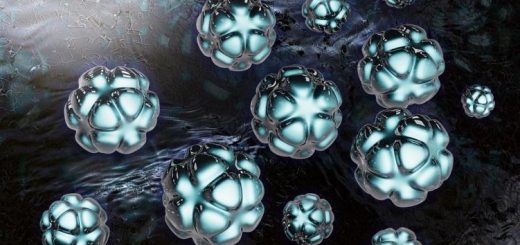The International Year of Chemistry
Craig McInnes celebrates the International Year of Chemistry, but asks the critical question “what’s it really all for anyway?”
At the tail end of January this year, UNESCO (United Nations Educational, Scientific and Cultural Organization) and IUPAC (International Union of Pure and Applied Chemistry) officially launched the International Year of Chemistry (IYC). The IYC is a ‘celebration of the achievements of chemistry and its contributions to the well-being of humankind’.
It has many positive themes which run through it, namely:
- Increasing the public’s appreciation of the global contributions that chemistry makes towards our lives
- Encouraging interest in chemistry among young people
- Generating enthusiasm towards the creative processes of chemistry
- Celebrating the contribution of women in science
- Engaging the public in an interactive manner with chemistry
An international seminar and exhibition was held at the UNESCO headquarters in Paris to officially launch the initiative. Other events were held across the world, including a chemistry demonstration at the House of Commons. The launch served as a platform to drive home the initiative’s aims and of course to gain publicity for the upcoming events (see below). Notably, the exhibition tried to capture people’s attention by casually addressing the issue of the global energy crisis – something that people notice every day with the rising cost of fuel – to give this evening a feeling of relevance for people everywhere.
Things to look out for:
IUPAC and the RSC (Royal Society of Chemistry) have set out guidelines for events aimed at all ages and levels of expertise to help engage people in chemistry. Events are being planned and scheduled to take place throughout the year, both locally (see Glasgow Science Centre’s diary in November)1 and globally. With several events having taken place already, it seems that there may well be a new found enthusiasm within the chemistry community. One of the more prominent events – held in January – was ‘women sharing a chemical moment in time’ where women within the chemistry community joined together to network, discuss what it means to be a female scientist today and reflect upon the centenary of Marie Curie’s Nobel Prize2.
However, these events are not just an opportunity for chemists to pat each other on the back and congratulate themselves on contributing so much to mankind. Nor is their prime purpose to give everybody a chance to ‘network’ over some tea and cake. The real opportunity here is a chance to engage the public (in particular the younger generation) in chemistry and indeed in science as a whole. To that end, a set of experiments have been made available on the RSC’s website (www.rsc.org) based on the theme of water and its universal use. The experiments can be tailored to the appropriate level within a school environment and the results can be uploaded to the IYC data collection website. Here children can gain an understanding of the global impact that an individual’s work can have upon the scientific community as a whole. Moreover, the idea that scientific progress is made by small steps and through international cooperation is really driven home.
Is all this effort ultimately for nothing?
Nobody can deny that a great deal of effort has been put into making the IYC accessible to people of all ages and all walks of life. However the question of its legacy remains entirely unaddressed. After all, what’s the point of inspiring a new generation of chemists when there may be no jobs available for them? This becomes particularly relevant from the Scottish and even the British perspective. At a glance, the British chemical industry has been slowly eroding for decades, and with recent developments in the pharmaceutical sector, the picture looks bleak.
It’s difficult to imagine a former employee of Merck Sharp & Dohme (Motherwell) – who announced the closure of the site in 2010 – having much to celebrate when hearing the words “international year of chemistry”. In fact, they probably wouldn’t be alone, with (amongst others) GlaxoSmithKline (Harlow), AstraZeneca (Charnwood) and more recently Pfizer (Sandwich) all announcing job losses or site closures, the outlook really is grim3.
This depressing outlook doesn’t even stop there when we consider how much the budget cuts will affect research institutes such as universities. Teams all over the country are being forced to make do with less funding and are being railroaded into fashionable areas of chemistry scattered with buzzwords purely to make it seem more relevant. Whilst it can’t be denied that competition for funding makes teams more innovative and drives them towards potentially profitable discoveries, this level of cutbacks could have an irreversible, detrimental effect upon the British chemical industry and universities alike.
How should we deal with this ailing industry?
Don’t get me wrong, I’m not suggesting that you abandon all hope towards chemistry; in fact that couldn’t be further from the truth. If you’re reading this and have a young promising chemist in mind, take the time to encourage them. Maybe you could even join in with them on some of the many experiments and events that are scheduled throughout the year4. You could take them to the science centre in November or make sure that their school is participating in ‘the global experiment’ whatever their age. You should definitely make sure that this child is getting a chance to take advantage of the creative education seen in chemistry departments across the country and worldwide. Perhaps most importantly, you should ask the question “what is the government really doing to tackle the problems seen in a diminishing chemical industry?” If that question happens to be directed towards your local MP, all the better.
References
- Glasgow Science Centre
- Royal Society of Chemistry
- Cressey D. Pfizer slashes R&D. 2011. Nature, 470, p 154
- RSC Again.










